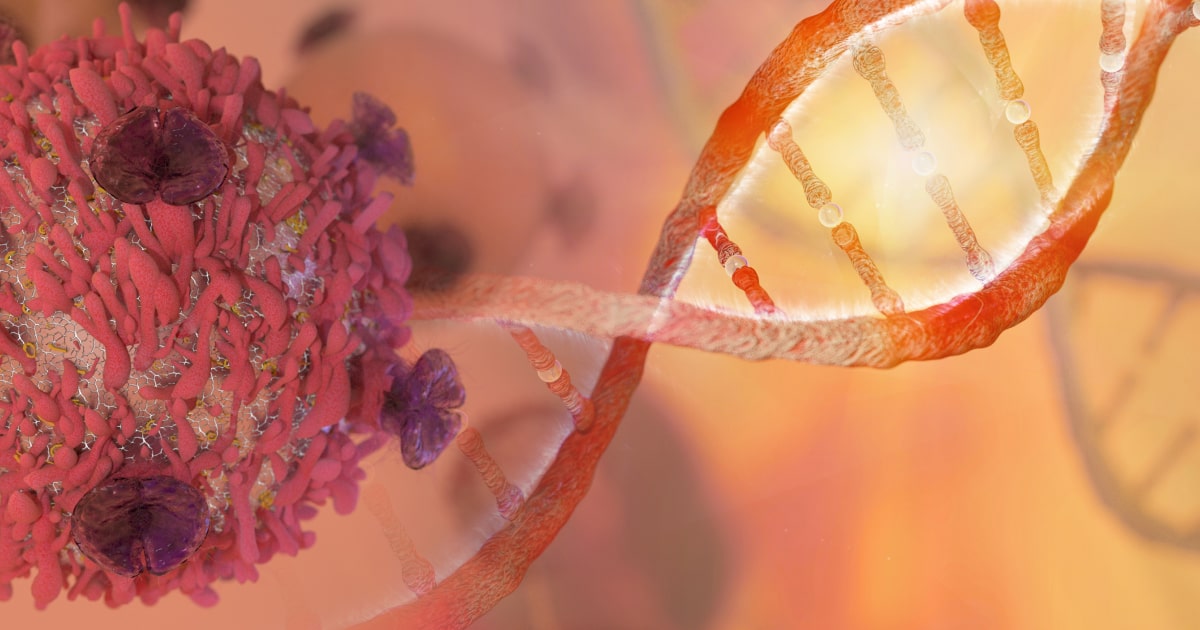
Expert Reviewed By: Dr. Brandon Colby MD
Autosomal recessive axonal hereditary motor and sensory neuropathy (AR-HMSN) is a rare genetic disorder that affects the peripheral nerves, leading to progressive muscle weakness and sensory loss. This article will delve into the complexities of understanding, diagnosing, and utilizing genetic testing for this disease, shedding light on the importance of early detection and management.
Understanding Autosomal Recessive Axonal Hereditary Motor and Sensory Neuropathy
AR-HMSN is a subtype of hereditary motor and sensory neuropathy (HMSN), also known as Charcot-Marie-Tooth disease (CMT). HMSN is a group of inherited neurological disorders that affect the peripheral nerves, which are responsible for transmitting signals between the brain, spinal cord, and the rest of the body. The symptoms of AR-HMSN typically begin in childhood or early adulthood and progressively worsen over time. These symptoms may include muscle weakness, atrophy, and sensory loss in the limbs, as well as difficulty with balance and coordination.
As the name suggests, AR-HMSN is inherited in an autosomal recessive manner, meaning that an individual must inherit two copies of the mutated gene (one from each parent) in order to develop the disease. Parents who carry one copy of the mutated gene are typically unaffected and may be unaware of their carrier status.
Diagnosing Autosomal Recessive Axonal Hereditary Motor and Sensory Neuropathy
Diagnosing AR-HMSN can be challenging due to its rarity and the variability of symptoms. A thorough clinical evaluation, including a detailed patient history and physical examination, is essential for identifying the characteristic signs of the disease. In some cases, additional tests such as nerve conduction studies and electromyography may be performed to assess the function of the peripheral nerves and muscles.
However, a definitive diagnosis of AR-HMSN can only be achieved through genetic testing, which involves the analysis of DNA samples to identify the presence of mutations in the specific genes associated with the disease. Genetic testing can also be used to confirm a diagnosis in individuals with a family history of AR-HMSN or to determine the carrier status of family members.
The Role of Genetic Testing in AR-HMSN
Genetic testing plays a crucial role in the diagnosis and management of AR-HMSN. Some of the key benefits of genetic testing for this disorder include:
- Definitive Diagnosis: Genetic testing can confirm the presence of AR-HMSN-causing mutations, providing a definitive diagnosis and enabling appropriate management and treatment strategies to be implemented.
- Carrier Testing: Identifying carriers of the mutated gene allows for informed family planning decisions and the potential to prevent the transmission of the disease to future generations.
- Prenatal and Preimplantation Genetic Diagnosis: Couples at risk of having a child with AR-HMSN can opt for prenatal genetic testing or preimplantation genetic diagnosis (PGD) during in vitro fertilization (IVF) to ensure that their child does not inherit the disease-causing mutations.
Challenges and Limitations of Genetic Testing for AR-HMSN
While genetic testing offers numerous benefits for individuals and families affected by AR-HMSN, there are also some challenges and limitations to consider:
- Access and Cost: Genetic testing can be expensive and may not be covered by all insurance providers, potentially limiting access for some individuals.
- Emotional Impact: Receiving a positive diagnosis or learning of carrier status can be emotionally challenging for individuals and families, highlighting the importance of genetic counseling and support services.
- Genetic Complexity: The genetic basis of AR-HMSN is not yet fully understood, and in some cases, the specific gene mutations responsible for the disease may not be identified through current testing methods.
In conclusion, understanding, diagnosing, and using genetic testing for autosomal recessive axonal hereditary motor and sensory neuropathy are essential for improving the lives of those affected by this rare genetic disorder. Early detection and management can help to mitigate the progression of symptoms, while genetic testing enables informed family planning and the potential to prevent the transmission of the disease to future generations.
About The Expert Reviewer
Dr. Brandon Colby MD is a US physician specializing in the personalized prevention of disease through the use of genomic technologies. He’s an expert in genetic testing, genetic analysis, and precision medicine. Dr. Colby is also the Founder of and the author of Outsmart Your Genes.
Dr. Colby holds an MD from the Mount Sinai School of Medicine, an MBA from Stanford University’s Graduate School of Business, and a degree in Genetics with Honors from the University of Michigan. He is an Affiliate Specialist of the American College of Medical Genetics and Genomics (ACMG), an Associate of the American College of Preventive Medicine (ACPM), and a member of the National Society of Genetic Counselors (NSGC)